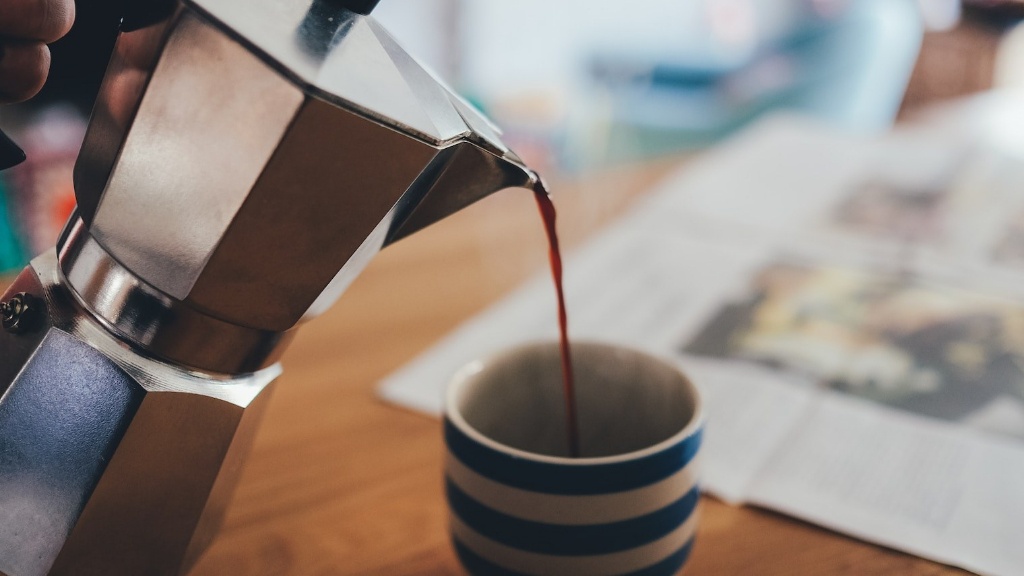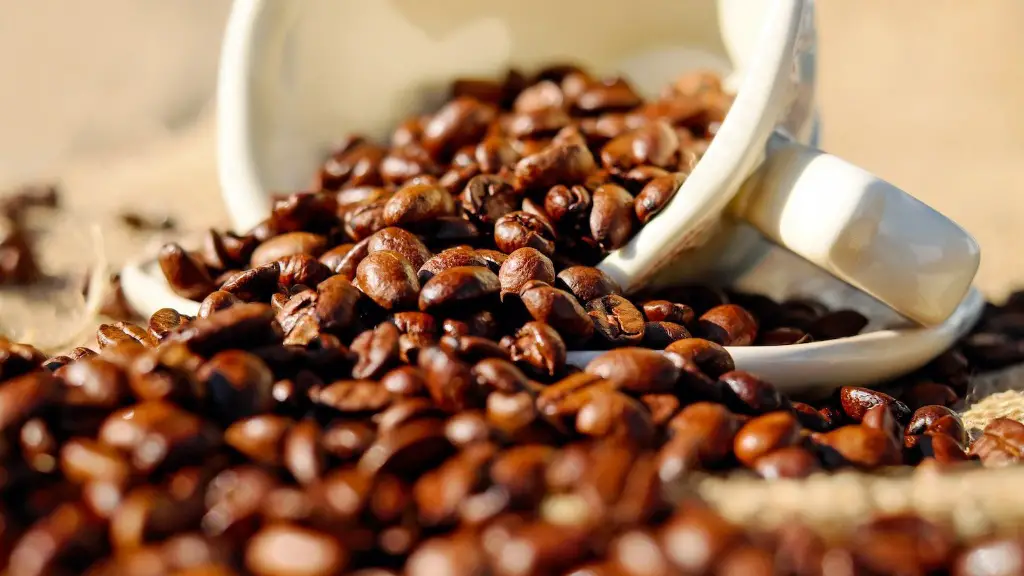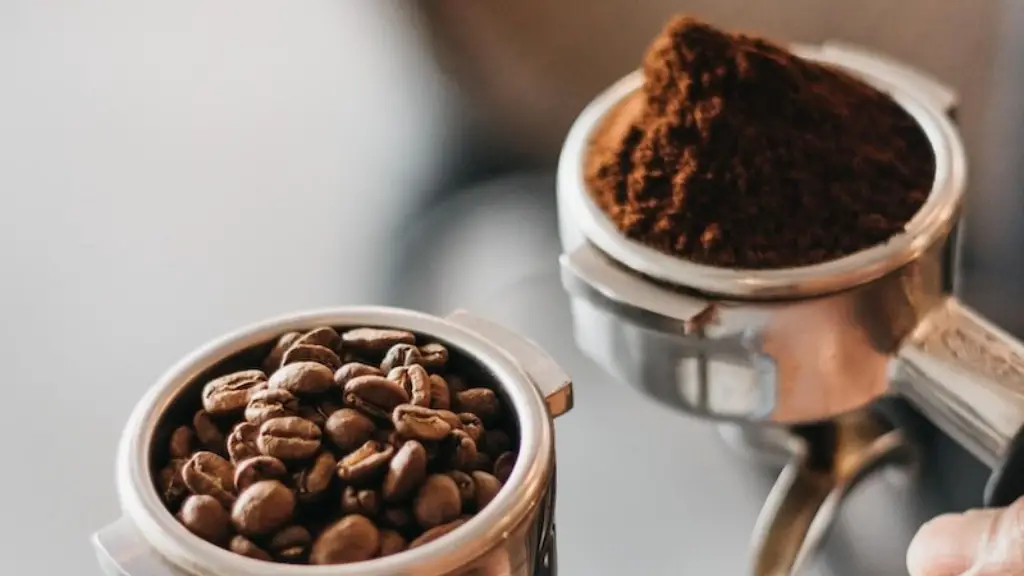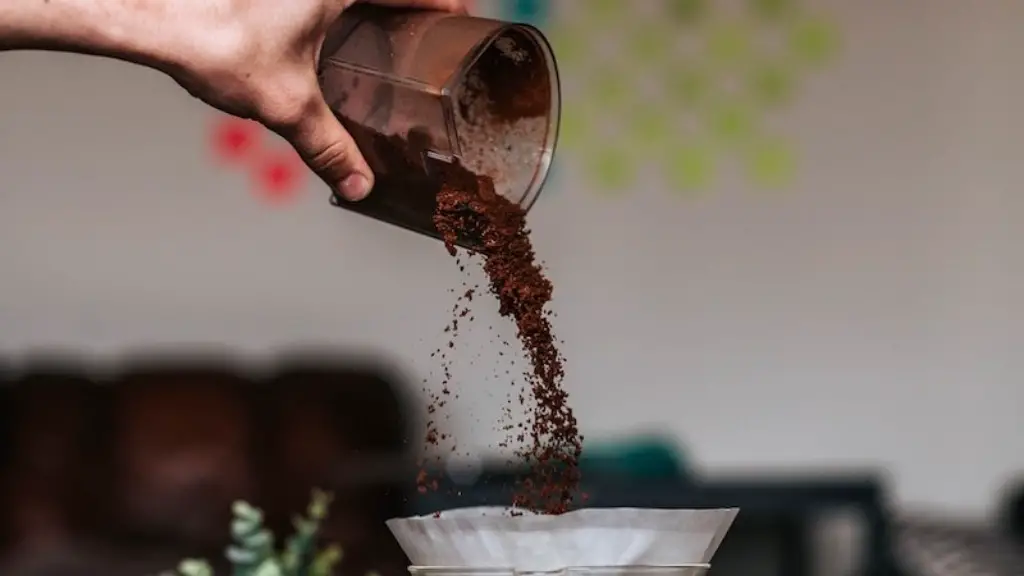Coffee is a stimulant beverage that is brewed from roasted beans of the coffee plant. The effects of coffee on sleep and health vary from person to person. Many people are wondering, what is the latest you should drink coffee?
According to the National Sleep Foundation, drinking coffee five to six hours before bedtime can interfere with sleep. They point out that the high content of caffeine in coffee can raise your energy level and make it more difficult to fall asleep since your body takes several hours to metabolize the caffeine in your bloodstream. It is not recommended to drink coffee late in the evening if you have trouble sleeping.
The American Academy of Sleep Medicine (AASM) recommends avoiding caffeine late in the day. They suggest that the best time to have your last cup of coffee should be no later than 6 p.m. The AASM suggests avoiding caffeine four to six hours before bedtime. Even decaf coffee can contribute to insomnia due to its small but significant amount of caffeine.
The amount of caffeine in coffee can range from 95mg to 165mg per 8-ounce cup. The recommended amount of caffeine for adults ranges from 4 to 400mg per day. So though it’s acceptable to have some coffee late in the afternoon, limiting how much you drink is important to help control your sleep. Individuals with caffeine sensitivities should try to limit their intake to no more than 200mg of caffeine per day.
Most experts agree that drinking coffee too late in the day can have a negative effect on one’s sleep. But some advocate drinking coffee later in the day, up to several hours before bedtime. They argue that people who have been drinking coffee regularly for many years have already built up a tolerance to its effects, and the reported increase in energy will not significantly interfere with the quality of their sleep. While caffeine can improve alertness and concentration, it is possible to have too much and end up having difficulty sleeping.
An important factor to consider is that everyone has a different sensitivity level to caffeine. Some people may be able to have coffee late in the day and sleep just fine, while others might have trouble falling asleep and staying asleep if they drink coffee after 6 pm. It is important to pay attention to understand how your body responds to caffeine to find the best time for your last cup of coffee.
Coffee and Affect on Energy Levels
The effects of caffeine on the body can vary from person to person. While many people rely on coffee for a boost of energy, for others it can cause jitters and anxiety. Some people even experience insomnia when drinking coffee late in the day.
One way to control your caffeine intake is by drinking coffee before noon. This is when coffee tends to be the most effective in improving alertness and energy levels, while still allowing you to get a good night’s sleep. Drinking coffee later in the day might make you feel more sleepy than energized due to its peak metabolization around 6 in the evening.
Caffeine tolerance will also have an impact on how late you can have your last cup of coffee. Some people may have higher tolerances to caffeine and can have coffee later in the day and still get restful sleep. For others, they may need to avoid caffeine completely or stick to decaf coffee if they are sensitive.
Coffee should be enjoyed in moderation and late afternoons should be the latest you will find yourself having a cup. Remember to pay attention to how your body responds to caffeine to find the best time for your last cup of coffee.
Coffee and its Effect on Diet
Drinking coffee late in the day may also interfere with your diet and cause weight gain. Some studies suggest that caffeine can alter your body’s hormones, raising insulin levels and increasing hunger. Caffeine may also interfere with your body’s natural process of breaking down fat. This can affect metabolism, leading to weight gain. So, if you’re trying to watch your weight, it is important to limit your intake of caffeine, including coffee.
Furthermore, the sugar and cream that is often added to coffee can add calories, making it more detrimental to your diet if you drink it late in the day. Research has shown that consuming caffeine late in the evening can make it difficult to break down carbohydrates and fats, leading to increases in weight gain. For this reason, it is best to limit your intake of coffee late in the day.
Another potential issue caused by consuming coffee late in the day is an increased risk for heartburn. Caffeine can relax the muscles in the lower area of your esophagus, resulting in acid reflux. This can lead to indigestion and stomach discomfort, making it important to limit your coffee consumption late in the day.
Finally, it is important to keep in mind that consuming caffeine late in the day can interfere with your body’s natural circadian rhythm. This can disrupt melatonin production, making it more difficult to fall asleep and stay asleep. Additionally, the stimulating effects of caffeine can increase anxiety, leading to an overall decrease in feelings of well being. For these reasons, it is best to limit your consumption of coffee late in the day.
Coffee and Caffeine Alternatives
If you find yourself craving a caffeine boost late in the day, there are some alternatives to coffee that may help you satisfy your craving without interfering with your sleep. A cup of herbal tea can provide a relaxing effect without the influence of caffeine.
Green tea is also a good alternative to coffee with its lower levels of caffeine and its additional health benefits. Hot cocoa is another alternative that can provide the same rich flavor as coffee with no caffeine at all. Finally, you can opt for decaf coffee, which can still provide the same rich flavor while avoiding the late day caffeine.
It is also possible to choose foods that have natural sources of caffeine. If you’re looking for a late day boost of energy, you can eat foods like dark chocolate, bananas, yogurt, and nuts which can provide more sustained energy levels while avoiding the stimulating effects of caffeine.
Overall, it is important to be mindful of your caffeine intake, especially late in the day. Caffeine can interfere with sleep, disrupt your body’s natural circadian rhythm, and cause indigestion. To avoid these issues, it is important to try to limit your caffeine intake to no later than 6 pm.
Decaffeinated Coffee
Another option is to opt for decaffeinated coffee. Decaffeinated coffee typically contains about 10-20mg of caffeine per cup, which is significantly lower than regular coffee. Additionally, decaf coffee contains polyphenols, which are beneficial antioxidants that can help improve health.
Decaffeinated coffee can provide the same flavor and aroma as regular coffee while avoiding the stimulating effects of caffeine. It can also provide a boost of energy without the jittery feeling associated with caffeine. Additionally, it can help reduce your risk of heartburn and other digestive issues.
However, it is important to keep in mind that decaffeinated coffee can still contain small amounts of caffeine, so it is important to take this into consideration when choosing when to have your last cup of coffee. Even decaf coffee can contribute to energy disruption, so it is best to avoid having it too late in the day.
Coffee and Mental Health
Another potential issue associated with drinking coffee late in the day is an increased risk of mental health issues. Caffeine can act as a stimulant, causing an elevation in mood. This can be beneficial for some people, but for others it can lead to anxiety and cause mood swings. Additionally, caffeine can interfere with concentration and focus, which can negatively affect productivity and overall mental health.
Furthermore, drinking too much coffee late in the day can contribute to insomnia and make it more difficult to fall asleep. This can lead to increased stress and anxiety, which can have a negative impact on overall mental health. For this reason, it is important to limit your caffeine intake late in the day.
Finally, it is important to pay attention to the quality of your sleep. Poor quality sleep can lead to increased risk of mood disorders, such as depression and anxiety. Research suggests that drinking coffee late in the day can interfere with the quality of sleep and therefore increase the risk of developing mental health issues. It is important to be mindful of your caffeine intake and only drink coffee up to six hours before bedtime.





